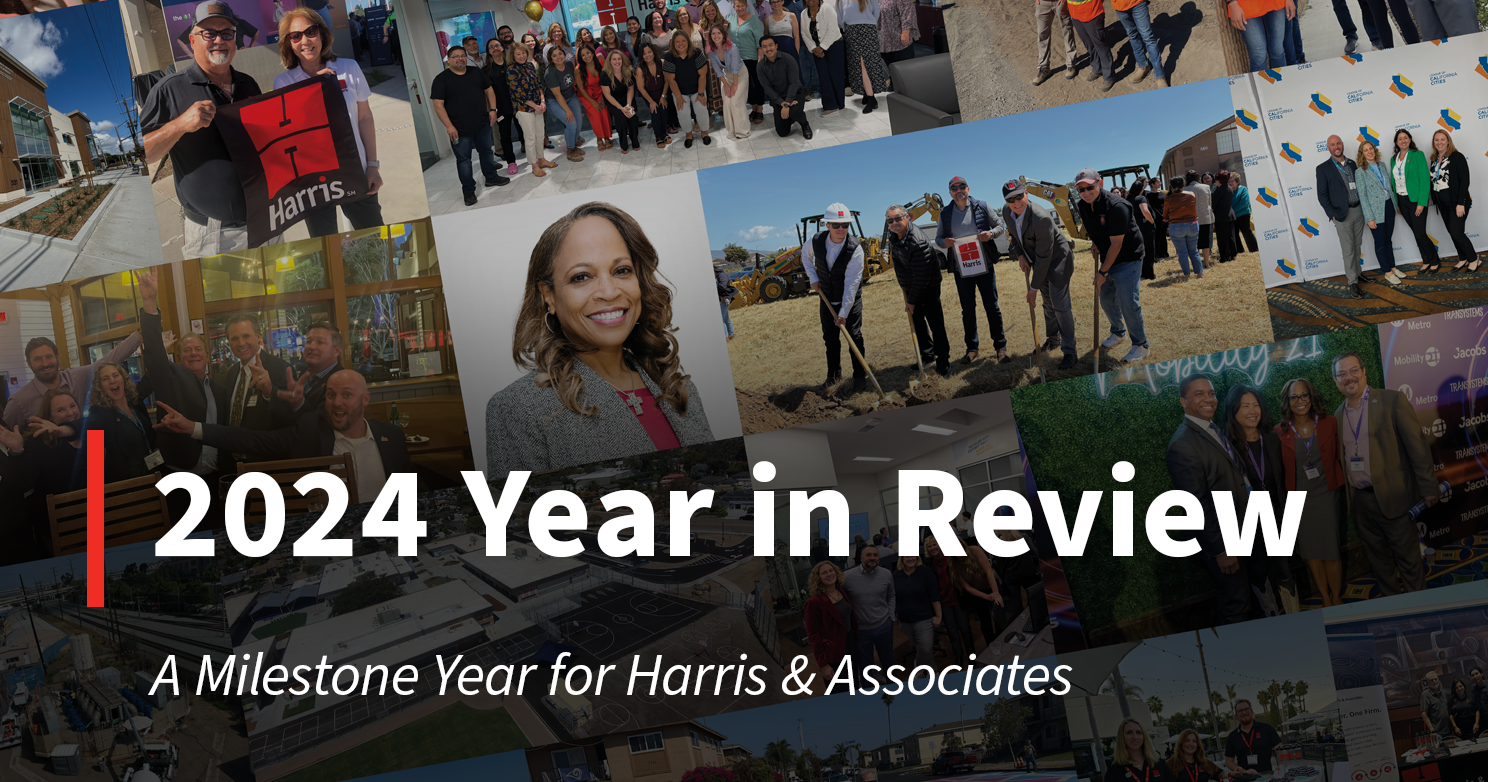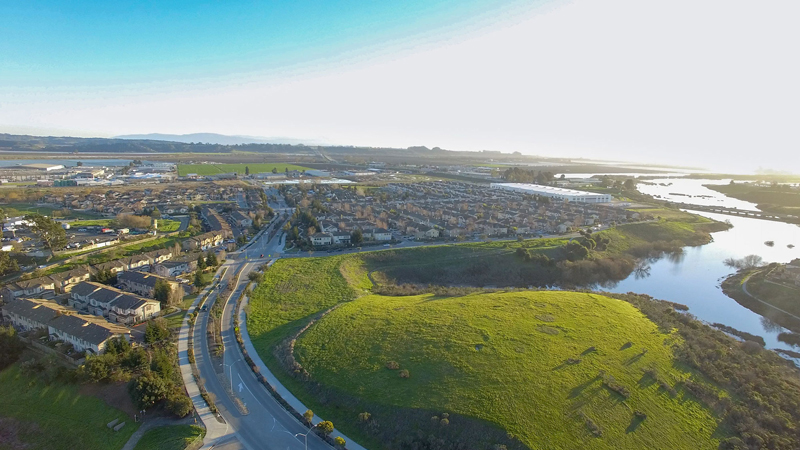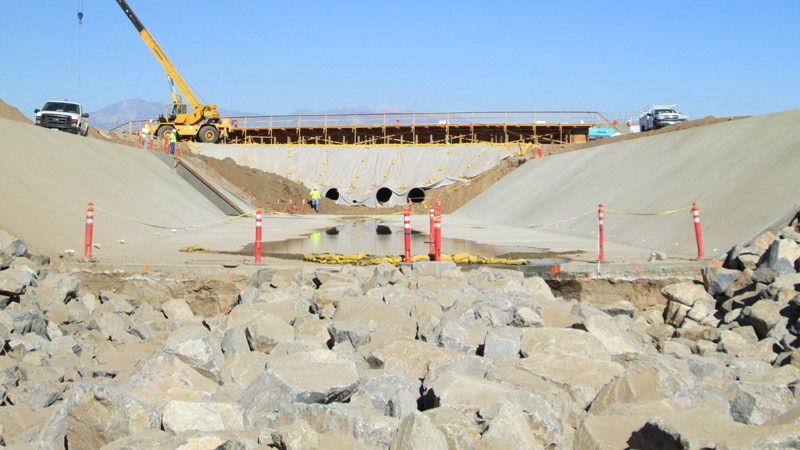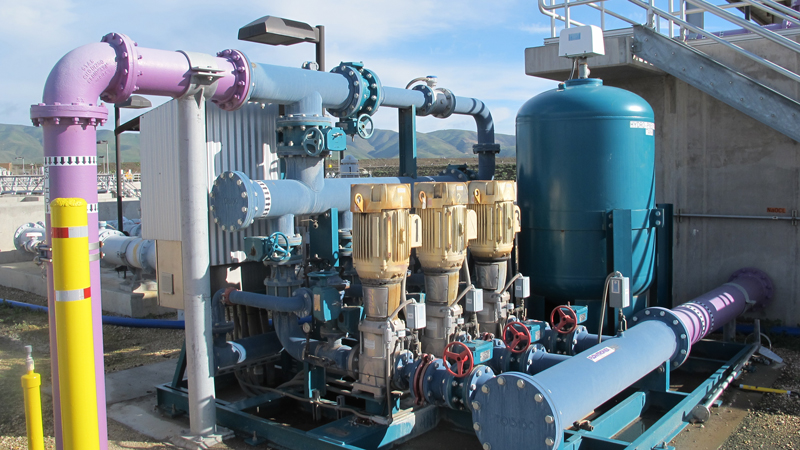10.8 minute read
October 07, 2024
Stormwater management is often overlooked as a critical part of community resilience, public health and the environment. From controlling flooding to ensuring clean water reaches California’s streams and rivers, proper stormwater management is essential for both environmental health and community resiliency. Agencies are facing aging infrastructure combined with more intense rainfall events, which have the potential to cause negative impacts to aquatic and riparian habitats, damage to property and infrastructure, even loss of life. Many agencies have not seen an increase in stormwater funding since the passage of Proposition 218 in 1996 (which imposed significant restrictions on how local governments can levy taxes and assessments including stormwater infrastructure), and are facing deferred maintenance and/or replacement of aging infrastructure, as well as deferred capital improvements to address undersized infrastructure. This is coupled with regulatory requirements for stormwater quality and trash capture, which further strain already underfunded programs.
Today, the selection of an appropriate funding mechanism to construct, operate and maintain stormwater infrastructure becomes even more critical as the purchasing power of existing stormwater funding diminishes with time. We will explore several different strategies for stormwater funding, each with their own opportunities and concerns, to inform the selection process for our partners, and share recent experiences for success.
The three main strategies we will focus on today include:
Other funding strategies that are worthy of mention include:
Comparison of Strategies
|
Overview |
Properties are assessed a charge based on the benefits received by stormwater management within a designated area or district. |
Properties are charged a fee for the cost of providing stormwater management services based on square footage of impervious surface. |
A tax levied specifically for stormwater management applied to all properties within a designated area or district. |
|
Authorization |
Municipal Improvement Act of 1913/ Improvement Bond Act of 1915 or Benefit Assessment Act of 1982. |
Health and Safety Code Section 5473 et. Seq authorizes Public Agencies to collect stormwater regulatory charges on the tax roll with general taxes. |
Subdivision (d), Section 1 Article XIII C of the California Constitution, Government Code Section 50075 et. seq. |
|
Ballot Weighting |
Ballots are weighted by the dollar amount of each assessment. |
Ballots are weighted equally, one vote per property. |
Ballots are weighted equally, one vote per registered voter. |
|
Ballot Results |
Majority protest where ballot opposed must exceed ballots in favor. |
Two-step process, first a majority protest process, then an election where ballots in favor must exceed ballots against. |
Requires two-thirds approval of those registered voters who vote. |
|
Benefits |
|
|
|
|
Concerns |
|
|
|
|
Amount |
Assessment amount must be proportional to the “special benefit” received by the parcel. |
Fees are proportional to use – how much does each property contribute based on impervious area. |
Tax amount is based on structure of the special tax rate and method of calculation. |
|
Implementation |
|
|
|
|
Time to Complete |
Estimate 9 to 12 months |
Estimate 12 to 18 months |
Estimate 18 to 24 months |
Recent experiences and keys to success
Our recent experiences in assisting our partners seeking stormwater management funding have repeatedly reinforced the importance of public outreach, education and engagement well ahead of the balloting process. Successful efforts have involved a well-planned and thorough public engagement process. Knowing the land uses and issues that are important to property owners allows for effective use of resources. This is area specific, and can include residential property owners, Homeowner’s associations, Business Industry Associations, Public Agencies, Public Utilities, and School Districts.
Keep in mind that if the first time the property owners hear about the effort is in the balloting process, the effort may not be successful.
Another key element is polling to determine and/or confirm property owner’s tolerance/appetite for the effort, to identify issues that are important to property owners, and how much funding they will support. Polling can also provide valuable insight as to vulnerabilities to an organized opposition effort, and what talking points are perceived to be persuasive with respondents.
Looking ahead
Selecting the most appropriate stormwater management funding option is crucial for maintaining and enhancing the infrastructure that protects our communities from flooding, pollution, and environmental degradation. Each funding mechanism—whether it is benefit assessments, stormwater utility fees, special taxes, general sales taxes, development impact fees, grant funding, or bond financing—comes with its own set of advantages and challenges.
The best choice depends on a variety of factors, including the specific needs of your community, the scale of stormwater projects, and the ability to secure stable and equitable funding. Benefit assessments and stormwater utility fees offer a direct link between service and cost but require careful administration and transparency. Special taxes provide broader funding but may face political and equity hurdles. Development impact fees ensure that new developments contribute fairly to the system but do not address existing deficiencies and future maintenance, while grant funding and bond financing can offer additional resources but have their own constraints and complexities.
As you navigate these options, consider not only the immediate financial implications but also the long-term sustainability and community impact. Engaging stakeholders, conducting thorough assessments, and being transparent about the use of funds can help garner support and ensure the success of your stormwater management funding efforts.
Effective stormwater management requires a thoughtful and balanced approach to funding. By understanding and carefully selecting the appropriate funding mechanisms, communities can build resilient, efficient, and equitable stormwater systems that safeguard our environment and enhance quality of life for all residents.
Harris is committed to supporting Agencies with selecting and implementing funding strategies for stormwater management with successful outcomes. For more information on how Harris can assist your agency in pursuing stormwater management funding, please contact us.
Authors
Markets
Services
Categories
Stormwater Utility Fee
Special Taxes
Grant Funding












